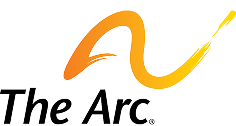Deciding How to Spend Your Time
After a person with intellectual or developmental disabilities (IDD) finishes school, it’s normal to wonder what comes next. There are many different ways people choose to spend their days. Some want to work. Others prefer volunteering, classes, or community programs.
Think about what’s most important to you. Earning a paycheck? Spending time with friends or being out in the community? Learning new skills? When you decide what’s important, it’s easier to explore options.
Learning What Options Are Available
Every community is different, so the first step is finding out what’s available. To learn about work or volunteer programs in your area, connect with:
- Your state disability agency
- A local chapter of The Arc
- Other community organizations that support people with disabilities
If you decide a job is important, make sure you understand if earning money will affect other supports you receive, like Medicaid. A benefits counselor can explain how working may change benefit eligibility so you can plan ahead. Your local chapter of The Arc can help you connect with someone.

Getting a Job
Many people with disabilities work regular jobs alongside people without disabilities. They earn the same wages as other people doing the same work.
Some people get help through supported employment. This is similar to a regular job, but you get ongoing help from a job coach or your employer to do your best work. Most states use Medicaid funding to pay for supported employment services, and sometimes there is a waiting list. Ask your local disability agency or a chapter of The Arc how to apply.
These career tips can help you when you’re ready to find a job.
Other Ways to Stay Active
Not everyone wants or is ready to work right away. There are other ways to stay active and connected.
- Day programs: Learn new skills, work on personal goals, participate in activities you enjoy, and spend time with friends.
- Volunteering: Give back to your community, learn job skills, meet new people, and stay active while waiting for other services.
There’s no one right way to spend your days. The goal is finding what makes you happy and helps you live the life you want.
Ready to Start Planning?
Our future planning template makes it easy to get started! Writing a future plan for a person with IDD helps explain daily routines, preferences, support needs, and goals for the future. It can complement legal and financial plans by providing personal details about the person that are not typically included in formal paperwork.
Remember to review and update this plan at least once a year. As life changes, this document should change too.
